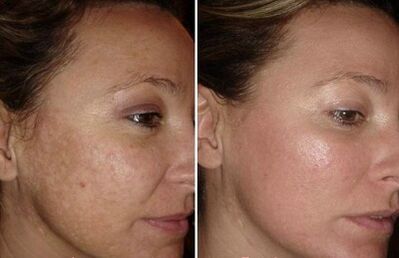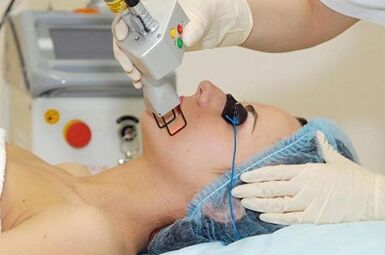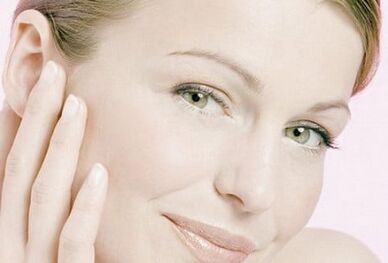In youth, facial skin appears smooth, fresh and toned, despite poor health and lack of cosmetic care.Over the years, its appearance gradually changes: first, the pleasant color disappears and the first wrinkles appear, then spider veins, age spots and deep folds.Each change indicates that the skin is aging.When regular face masks no longer help, more powerful procedures come to the rescue, one of them is laser facial rejuvenation.
The advantage of fractional photothermolysis (this is its second name) is complete safety and high efficiency in eliminating wrinkles and other defects.This procedure is a gentler alternative to surgery or injection.
Laser skin rejuvenation technology
What causes skin aging?There are several main reasons:
- weakening of metabolic processes;
- slow or incomplete removal of waste;
- deterioration of cell growth function;
- reducing the transfer of nutrients to cells.

Of course, it is impossible to start the reverse process of cell rebirth, but there is a chance to activate the activity of “sleeping” cells.For this purpose, laser facial rejuvenation is used.After heat treatment, viable cells are activated and weak cells die completely, giving way to stronger specimens.In short, the cellular composition of the skin is renewed.
The quality and speed of the restoration process depend on the diameter of the laser beam.Its thickness must be less than 200 microns.Fractional thermolysis has improved the effects of laser treatment: instead of one beam, many microscopic beams act on the surface of the skin, as if forming a mesh.Local zones are innovations in the use of laser technology.They help to avoid touching healthy areas of the skin, thus promoting rapid recovery.
Types of fractional laser rejuvenation
Rejuvenation and lifting occur through the use of two effective methods of exposure, which differ in some features from the use of a laser.
- Impact on the entire surface of the skin
Its main function is the evaporation of the upper cells of the epidermis.Visible, superficial microscopic areas are removed, causing a lifting effect - the skin appears to stretch.As a result, the first sign of aging – a network of fine wrinkles – disappears.
- Exposure method without damaging the skin surface
It affects the lower and deeper layers of the dermis and epidermis, without affecting the upper area.In this way, it is recommended to resolve underlying problems related to the irreversible process of skin aging.With the help of a laser beam, a new cellular structure of the membrane is built, the metabolic process is activated, collagen production is improved and, as a result, the skin becomes younger from the inside.

Both methods are aimed at local treatment, that is, the surrounding skin is not affected - this is necessary for quick and complete skin restoration.In fact, fractional laser facial rejuvenation can be called thermal shock, which resumes the growth of healthy cells.
The combination of both methods allows you to obtain maximum results due to a double external and internal healing impulse.This technique is practiced in many modern clinics that have laser equipment.
Progress of the procedure and its results
The advantage of laser skin treatment is the absence of pain, an attractive factor for people who are very afraid of pain.The procedure itself is divided into several steps.
- Superficial anesthesia, after which the patient does not feel pain, only a slight tingling sensation in the treatment area.The anesthetic composition is applied immediately before the session.
- Carrying out a session with a special device, the action of which is based on the use of a fractional laser.The session lasts one hour, although the exact time depends on the number of areas to be treated.
- Apply regenerating cream to the skin.
- Consultation with a skin care specialist.
The skin will take about a week to acquire a renewed appearance.This is a rather short period compared to, for example, surgery.
In the first two days, swelling will remain on the face, then it will be replaced by redness, after which the skin will begin to peel off - the process of eliminating dead cells begins.They will be replaced by young, healthy cells, which will give the face a fresh, youthful appearance.
Indications for fractional photothermolysis
Most women, and some men are no exception, carefully take care of themselves, so not only fractional facial rejuvenation has become popular, but also laser photothermolysis of other parts of the body.
Most often, patients come if they need:
- restoration of the skin of the entire body or some of its areas, especially visible ones;
- removal of hair networks and pigmentation;
- pore reduction;
- removal of scars, stretch marks, scars;
- skin whitening;
- smooth or eliminate wrinkles on the face;
- rejuvenation of the skin of the hands, chest, neck;
- renewal of skin texture, lifting.
Contraindications to the procedure
Each salon procedure has general and specific contraindications, laser treatment of facial skin is no exception.
Therefore, fractional laser procedures are prohibited for patients with any of the following diagnoses:
- deficiency of immunity, as a result – frequent infectious diseases;
- period of pregnancy, lactation;
- dermatosis in the treatment area;
- scars;
- Cancer;
- chronic blood diseases, diabetes;
- herpes.

Also, laser rejuvenation should be postponed if you are taking retinoids six months before the session and if you have a recent tan on your body.
Every woman, regardless of age, wants to have attractive and healthy skin
There are several diseases for which the procedure is possible, but only after consulting a specialist, so before the session you should consult your doctor.If, however, one or more contraindications are identified, it is recommended to wait a certain period until complete recovery or the onset of a state in which the body is ready to be exposed to the laser.The procedure itself is safe, but if the disease is present it can provoke its development.
If it is not possible to use a laser, you should opt for other methods to get rid of signs of skin aging, for example, Botox or hyaluronic acid injections.
























